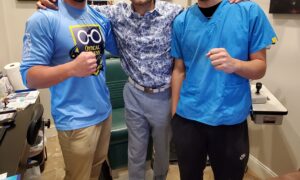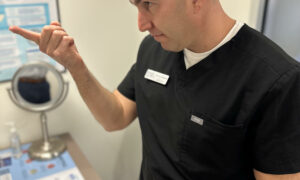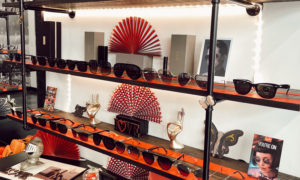By Donald S. Teig, OD,
FAAO
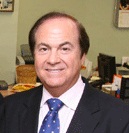
Distinguish your practice by offering tinted lenses tailored to specific sports and activities. Give patients customized care and protect their eyes from sun exposure.
Most practices sell sunwear and educate patients on the importance of protecting their eyes from the sun. But many still do not sell a selection of tinted sunwear customized for the particular sports or activities patients participate in. Offering tinted sunwear for sports ranging from golf to hunting is a low-cost way to show patients you care about their unique needs, including finding solutions that suit their individual lifestyle.
Wearing sunglasses on a bright day creates a catch-22 for those who enjoy sports. High-quality sunwear protects the eye from damaging ultra-violet rays, but it makes the pupil larger as the pupil dilates behind the darkened lenses. Vision is defined as the brain’s ability to interpret usable light, so if the sunglasses cut down on the amount of usable light, the athlete’s ability to see the playing field also is reduced. Lenses tinted to suit specific sports offers sun protection that enhances rather than reduces the athlete’s ability to see adequately to play the sport well.
The only cost associated with making a variety of tinted lenses available to our patients is the display kit that contains the trial lenses, which costs about $100. The cost to your practice to get the specialized tinted sunwear made-to-order varies depending on your arrangement with an optical laboratory. In our case, the cost is kept low due to a volume-based discount we are eligible for. If a high-end sunglass such as one made by Rudy Project or Maui Jim costs the patent between $160 to $300, the patient would pay between $590 to $790 to get those same sunglasses made with specialized tinted lenses.
The return on investment for incorporating these sports-specific tints and eyewear into your practice is not only substantial from a monetary stand point, but has intangible value as well in enhancing the image of your practice as a full service eye care establishment.
When patients come into our office, we ask about the sports and other activities they participate in on our patient intake form, and I follow-up with the patient in the exam room to inquire once more about the activities they participate in.
Transitions Lenses for Golf and Other Sports
Along with specialized tinted sunwear, you can offer patients Transitions Optical lenses tailored to specific sporting needs.
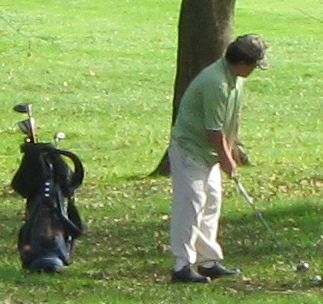 DEFINITY FAIRWAY Transitions SOLFX lenses and NEOX Transitions SOLFX sun lenses are optimized for golf, and are designed for outdoor activities with similar lighting conditions to golf. These sun lenses are available from Walman Soderberg. They offer increased depth perception, improved distance vision and superior clarity.
DEFINITY FAIRWAY Transitions SOLFX lenses and NEOX Transitions SOLFX sun lenses are optimized for golf, and are designed for outdoor activities with similar lighting conditions to golf. These sun lenses are available from Walman Soderberg. They offer increased depth perception, improved distance vision and superior clarity.
Essilor offers DEFINITY FAIRWAY Transitions SOLFX lenses, which are a progressive sunwear product designed to meet the unique visual demands of golfers with multifocal prescriptions. The lenses change from amber to a darker brown and come with Crizal Sun Mirrors. —ROB Editors
Before you sell tinted sports sunwear to patients, your staff must fully understand and be able to communicate the advantages of each kind of tint.
To help you get started, here is a primer on the best tints for different sports and conditions:
Clay Pigeon Shooting: Purple-Red Lens
Clay shooters usually are looking for their targets against a bright blue sky, with the need to differentiate the clay target from the graph made by surrounding trees. A purple-red lens works best for these athletes because it cuts down on light without making the lens become too dark. A more standard sunwear lens, such as a lens with a brownish tint, would not work as well because the dark color tends to distort the green of the surrounding grass and trees, making it harder to spot the clay target within that mass of green color. Some clay shooters opt to purchase sunglass frames that are made to allow the shooter to switch out different lenses to accommodate varying time of day and weather conditions.
For example:
Bright Sunny Day (trees in the background)
Vermillion (red-purple) lenses 
Neutral-Gray tint 
Sunny day with clear blue sky in background
Orange-Brown tint 
Water Sports: Polarized Sunwear in Standard Brown or Gray Tint
Polarized sun lenses in standard brown or gray is a good choice for water sport aficionados because it cuts back on the glare off the water. This allows water sport participants to see the contours of the water better and also may allow them to see further with the glare on the horizon cut down.
Hazy Conditions: Yellow Tint
American Optical used to make a Haze Master yellow-tinted lens that was marketed as the lens of choice for those participating in sports like full-day hikes because the yellow makes it easier to see in the haze that often accompanies dawn and dusk.
Drivers: Mirrored Lenses
Mirrored lenses are a good choice for long-distance drivers because the it deflects the reflection of light off metal, allowing the driver to see the road and other cars clearly while still having the ability to clearly see their own dashboard.
Frequent Overcast, Cloudy Conditions: Clear Lens with Glare-Free Treatment
If a patient participates in a sport in a location such as San Francisco that is often cloudy and overcast, a clear lens with a glare-free treatment that doesn’t have any color at all would work best.
Providing patients with tinted sunwear that makes the sports they participate in more enjoyable increases your practice’s value to them, giving them one more reason to visit your practice regularly.
Related ROB Articles
Biggest Users of Action Sports Sunglasses: Young Males
15 Tips for Winter Sunwear Sales Strategy
Polarized Rx Sunwear: Prime Revenue Opportunity
Donald S. Teig, OD, FAAO, is the founder and co-director of Ridgefield Family Eyecare and the Institute for Sports Vision in Ridgefield, Conn. To contact him: doc7ct@snet.net.

